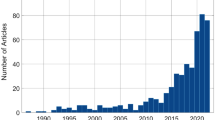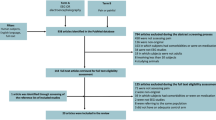Abstract
Event-related potentials (ERPs) were studied during deceptive and truthful responses of subjects that were in the normal state or under the influence of alcohol. The psychological task was designed in such a way that the subjects themselves decided whether or not they would tell a lie. Thirteen healthy volunteers participated in the study. An actual deceptive answer was characterized by a higher amplitude of the frontocentral ERP N190 component compared to the ERP accompanying a truthful answer. Alcohol consumption inverted the ratio between the amplitudes of this component in the cases of deceptive and truthful answers (with a higher amplitude in the latter case). The obtained result suggests that a deceptive action activates the so-called cerebral error detector. Under the influence of alcohol, the cerebral error detection system functioned abnormally, so that a deceptive action was not perceived as erroneous. This disturbance of automatic control may account for the lower amplitude of the late positive component of ERPs, which, in our opinion, reflects the process of making a decision on a deceptive response. This may explain why, e.g., alcohol consumption by a driver is hazardous: the activity is mainly controlled by conscious processes (the probability of making “the only right decision” in a critical situation is decreased, reactions become slow, etc.). Thus, the experimental model where the subject consumes a small amount of alcohol may be used for studying the altered functional mode of the cerebral error detector. Such studies seem promising in terms of searching for and developing methods for noninvasive modification of the error detector activity that could be used, e.g., in treatment for obsessions.
Similar content being viewed by others
References
Abe, N., Suzuki, M., Tsukiura, T., et al., Dissociable Roles of Prefrontal and Anterior Cingulate Cortices in Deception, Cerebr. Cortex, 2006, vol. 16, p. 192.
Allen, J.J.B. and Iacono, W.G., A Comparison of Methods for the Analysis of Event Related Potentials in Deception Detection, Psychophysiology, 1997, vol. 34, p. 234.
Ganis, G., Kosslyn, S.M., Stose, S., et al., Neural Correlates of Different Types of Deception: An fMRI Investigation, Cerebr. Cortex, 2003, vol. 13, p. 830.
Johnson, R., Barnhardt, J., and Zhu, J., The Deceptive Response: Effects of Response Conflict and Strategic Monitoring on the Late Positive Component and Episodic Memory-Related Brain Activity, Biol. Psychol., 2003, vol. 64, p. 217.
Johnson, R., Barnhardt, J., and Zhu, J., The Contribution of Executive Processes to Deceptive Responding, Neuropsychologia, 2004, vol. 42, p. 878.
Johnson, R., Barnhardt, J., and Zhu, J., Differential Effects of Practice on the Executive Processes Used for Truthful and Deceptive Responses: An Event-Related Brain Potential Study, Brain. Res. Cogn., 2005, vol. 24, p. 386.
Johnson, K.A., Kozel, F.A., Laken, S.J., and George, M.S., The Neuroscience of Functional Magnetic Resonance Imaging fMRI for Deception Detection, Am. J. Bioethics, 2007, vol. 7, p. 58.
Kozel, F.A., Padgett, T.M., and George, M.S., A Replication Study of the Neural Correlates of Deception, Behav. Neurosci., 2004, vol. 118, no. 4, p. 852.
Langleben, D., Schroeder, L., Maldjian, A., et al., Brain Activity during Simulated Deception: An Event-Related Functional Magnetic Resonance Study, NeuroImage, 2002, vol. 15, p. 727.
Lee, T.M.C., Liu, H.L., Tan, L.H., et al., Lie Detection by Functional Magnetic Resonance Imaging, Hum. Brain Map, 2002, vol. 15, p. 157.
Phan, K.L., Magalhaes, A., and Ziemlewicz, T.J., Neural Correlates of Telling Lies: A Functional Magnetic Resonance Imaging Study at 4 Tesla, Acad. Radiol., 2005, vol. 12, p. 164.
Rosenfeld, J.P., Soskins, M., Bosh, G., and Ryan, A., Simple, Effective Countermeasures to P300-Based Tests of Detection of Concealed Information, Psychophysiology, 2004, vol. 41, p. 205.
Rosenfeld, J.P., Ellwanger, J.W., Nolan, K., et al., P300 Scalp Amplitude Distribution as an Index of Deception in a Simulated Cognitive Deficit Model, Int. J. Psychophysiol., 1999, vol. 33, p. 3.
Rosenfeld, J.P., Shue, E., and Singer, E., Single Versus Multiple Probe Blocks of P300-based Concealed Information Tests for Self-Referring Versus Incidentally Obtained Information, Biol. Psychol., 2007, vol. 74, p. 396.
Spence, S.A., Farrow, T.F.D., and Herford, A.E., Functional Anatomical Correlates of Deception in Humans, NeuroReport, 2001, vol. 12, p. 2849.
Bechtereva, N.P. and Gretchin, V.B., Physiological Foundations of Mental Activity, Int. Rev. Neurobiol., 1968, vol. 11, p. 239.
Bechtereva, N.P., Neirofiziologicheskie aspekty psikhicheskoi deyatel’nosti cheloveka (Neurophysiological Aspects of Human Mental Activity), Leningrad: Meditsina, 1971.
Bechtereva, N.P., Neirofiziologicheskie aspekty psikhicheskoi deyatel’nosti cheloveka (Neurophysiological Aspects of Human Mental Activity), Leningrad: Meditsina, 1974, 2nd edition.
Bechtereva, N.P., Neurophysiological Aspects of Human Mental Activity, Oxford: University Press, 1978.
Bechtereva, N.P., Kropotov, Yu.D., Ponomarev, V.A., and Etlinger, S.C., In Search of Cerebral Error Detectors, Int. J. Psychophysiol., 1990, vol. 8, p. 261.
Bechtereva, N.P., Medvedev, S.V., and Abdullaev, Y.G., Neuronal Correlate of Mental Error Detection in the Brain Cortex, Biomed. Sci., 1991, vol. 2, p. 301.
Bechtereva, N.P., Gogolitsyn, Yu.P., Kropotov, Yu.D., and Medvedev, S.V., Neirofiziologicheskie osnovy myshleniya (Neurophysiological Mechanisms of Thinking), Leningrad: Nauka, 1985.
Botvinick, M.M., Braver, T.S., Barch, D.M., et al., Conflict Monitoring and Cognitive Control, Psychol. Rev., 2001, vol. 108, p. 624.
Bechtereva, N.P., Shemyakina, N.V., Starchenko, M.G., et al., Error Detection Mechanisms of the Brain: Background and Prospects, Int. J. Psychophysiol., 2005, vol. 58, p. 227.
Carter, C.S., Braver, T.S., Barch, D.M., et al., Anterior Cingulate Cortex, Error Detection, and the Online Monitoring of Performance, Science, 1998, vol. 280, p. 747.
Falkenstein, M., Hoorman, J., Christ, S., and Hohnsbein, J., ERP Components on Reaction Errors and Their Functional Significance: A Tutorial, Biol. Psychol., 2000, vol. 5, p. 187.
Gehring, W.J., Goss, B., Coles, M.G.H., et al., A Neural System for Error Detection and Compensation, Psychol. Sci., 1993, vol. 4, p. 385.
Holroyd, C.B., Nieuwenhuis, S., Yeung, N., et al., Dorsal Anterior Cingulate Cortex Shows fMRI Response to Internal and External Error Signals, Nat. Neurosci., 2004, vol. 7, p. 497.
Holroyd, C.B., Yeung, N., Coles, M.G., and Cohen, J.D., A Mechanism for Error Detection in Speeded Response Time Tasks, J. Exp. Psychol. Gen., 2005, vol. 134, p. 163.
Masaki, H., Falkenstein, M., Sturmer, B., et al., Does the Error Negativity Reflect Response Conflict Strength? Evidence from a Simon Task, Psychophysiology, 2007, vol. 44, p. 579.
Krigolson, O.E. and Holroyd, C.B., Hierarchical Error Processing: Different Errors, Different Systems, Brain Res., 2007, vol. 155, p. 70.
Taylor, S.F., Stern, E.R., and Gehring, W.J., Neural Systems for Error Monitoring: Recent Findings and Theoretical Perspectives, Neuroscientist, 2007, vol. 13, p. 160.
Vidal, F., Hasbroucq, T., Grapperon, J., and Bonnet, M., Is the ‘error Negativity’ Specific to Error? Biol. Psychol., 2000, vol. 51, p. 109.
Ullsperger, M. and Falkenstein, M., Errors, Conflicts and the Brain: Current Opinions on Performance Monitoring, Leipzig: Max Planck Institute of Cognitive Neuroscience, 2004.
Ullsperger, M. and von Cramon, D.Y., How Does Error Correction Differ from Error Signaling? An Event-Related Potential Study, Brain Res., 2006, vol. 1105, p. 102.
Yeung, N., Cohen, J.D., and Botvinick, M.M., The Neural Basis of Error Detection: Conflict Monitoring and the Error-Related Negativity, Psychol. Rev., 2004, vol. 111, p. 931.
Kireev, M.V., Starchenko, M.G., Pakhomov, S.V., and Medvedev, S.V., Stages of the Cerebral Mechanisms of Deceptive Responses, Fiziol. Chel., 2007, vol. 33, no. 6, p. 5 [Hum. Physiol. (Eng. Transl.), 2007, vol. 33, no. 6, p. 659].
Naatanen R., Alho K. Mismatch Negativity—the Measure for Central Sound Representation Accuracy, Audiol. Neurootol., 1997, vol. 2, p. 341.
Naatanen, R., Gaillard, A.W., and Mantysalo, S., Early Selective-Attention Effect on Evoked Potential Reinterpreted, Acta Psychol., 1978, vol. 42, p. 313.
Medvedev, S.V., Anichkov, A.D., and Polyakov, Yu.I., Physiological Mechanisms of the Effectiveness of Bilateral Stereotactic Cingulotomy against Strong Psychological Dependence in Drug Addicts, Fiziol. Chel., 2003, vol. 29, no. 4, p. 117 [Hum. Physiol. (Eng. Transl.), 2003, vol. 29, no. 4, p. 492].
Easdon, C., Izenberg, A., Armilio, M.L., et al., Alcohol Consumption Impairs Stimulus-and Error-Related Processing during a Go/No-Go Task, Cogn. Brain Res., 2005, vol. 25, p. 873.
Jaaskelainen, I.P., Naatanen, R., and Sillanaukee, P., Effect of Acute Ethanol on Event-Related Potentials: A Review and Reinterpretation, Biol. Psychiatry, 1996, vol. 40, p. 284.
Holroyd, B.C. and Yeung, N., Alcohol and Error Processing, Trends Neurosci., 2003, vol. 26, p. 402.
Ridderinkhof, K.R., Vlugt, Y., Bramlage, A., et al., Alcohol Consumption impairs Detection of Performance Errors in Mediofrontal Cortex, Science., 2002, vol. 298, p. 2209.
Greenhouse, S.W. and Geisser, S., On Methods in the Analysis of Profile Data, Psychometrika, 1959, vol. 24, p. 95.
Fillmore, M.T. and Vogel-Sprott, M., Response Inhibition under Alcohol: Effects of Cognitive and Motivational Conflict, J. Stud. Alcohol, 2000, vol. 61, p. 239.
Marczinski, C.A. and Fillmore, M.T., Compensating for Alcohol-Induced Impairment of Control: Effects on Inhibition and Activation of Behavior, Psychopharmacology, 2005, vol. 181, p. 337.
Author information
Authors and Affiliations
Additional information
Original Russian Text © M.V. Kireev, S.V. Pakhomov, S.V. Medvedev, 2008, published in Fiziologiya Cheloveka, 2008, Vol. 34, No. 2, pp. 13–22.
Rights and permissions
About this article
Cite this article
Kireev, M.V., Pakhomov, S.V. & Medvedev, S.V. Cerebral mechanisms of error detection during deceptive responses in the normal state and under the influence of alcohol. Hum Physiol 34, 141–149 (2008). https://doi.org/10.1134/S0362119708020023
Received:
Published:
Issue Date:
DOI: https://doi.org/10.1134/S0362119708020023




